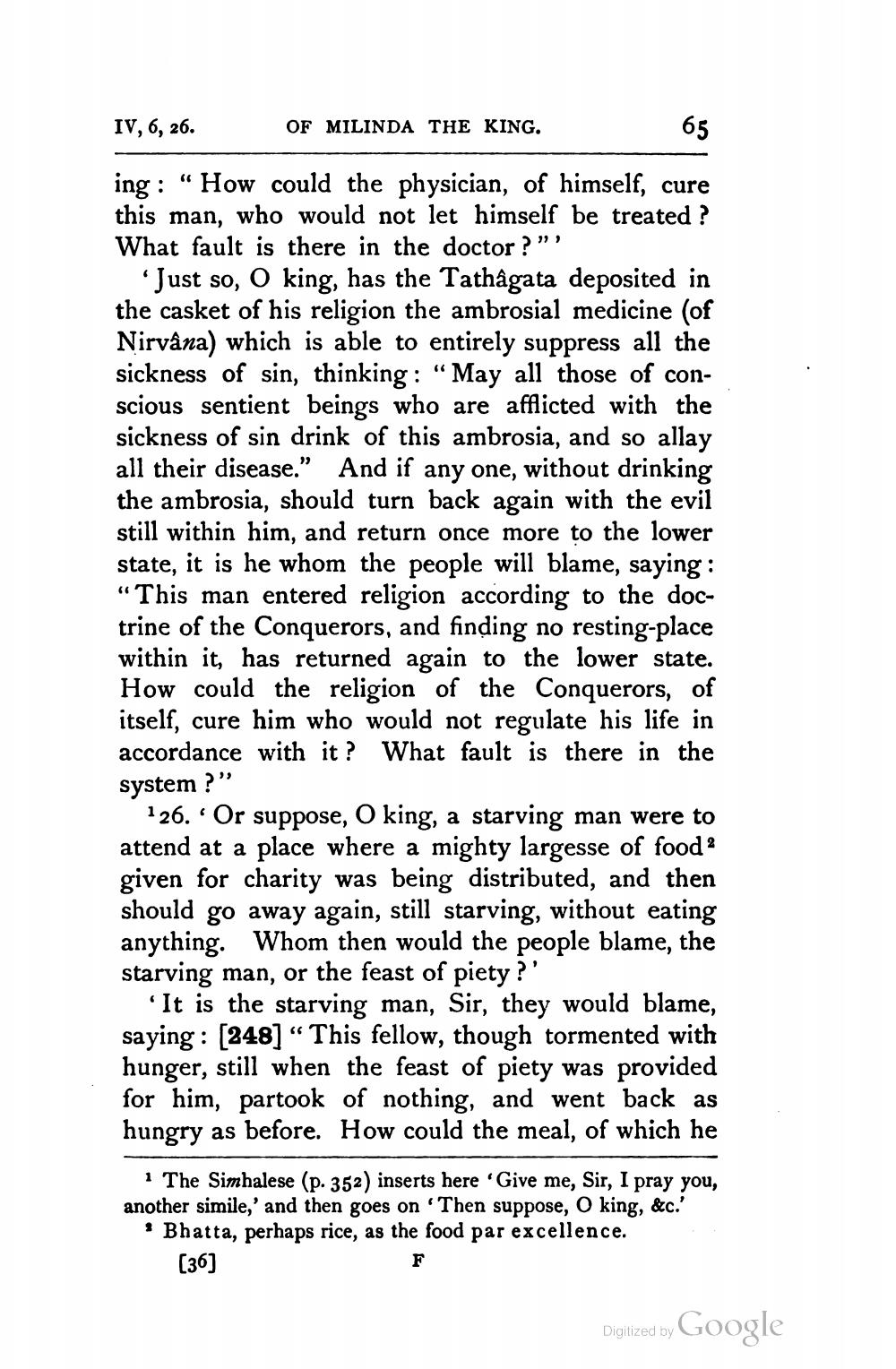________________
IV, 6, 26.
OF MILINDA THE KING.
ing : “How could the physician, of himself, cure this man, who would not let himself be treated ? What fault is there in the doctor?”'
Just so, O king, has the Tathagata deposited in the casket of his religion the ambrosial medicine (of Nirvana) which is able to entirely suppress all the sickness of sin, thinking : “May all those of conscious sentient beings who are afflicted with the sickness of sin drink of this ambrosia, and so allay all their disease.” And if any one, without drinking the ambrosia, should turn back again with the evil still within him, and return once more to the lower state, it is he whom the people will blame, saying: “This man entered religion according to the doctrine of the Conquerors, and finding no resting-place within it, has returned again to the lower state. How could the religion of the Conquerors, of itself, cure him who would not regulate his life in accordance with it? What fault is there in the system ?”
126. Or suppose, O king, a starving man were to attend at a place where a mighty largesse of food a given for charity was being distributed, and then should go away again, still starving, without eating anything. Whom then would the people blame, the starving man, or the feast of piety?'
'It is the starving man, Sir, they would blame, saying : [248] “ This fellow, though tormented with hunger, still when the feast of piety was provided for him, partook of nothing, and went back as hungry as before. How could the meal, of which he
1 The Simhalese (p. 352) inserts here 'Give me, Sir, I pray you, another simile,' and then goes on. Then suppose, o king, &c.' • Bhatta, perhaps rice, as the food par excellence.
[36]
Digitized by Google




